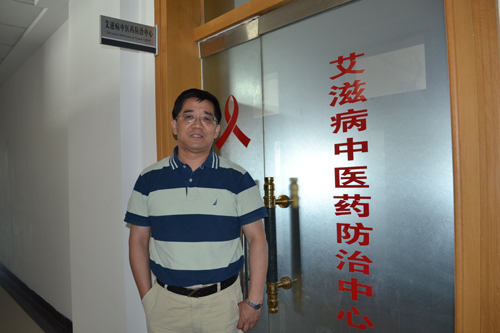|
 |
|
Professor Wang Jian (LIU JIAN) |
Professor Wang Jian, Deputy Director of the Traditional Chinese Medicine (TCM) Center for AIDS Prevention and Treatment, China Academy of Chinese Medical Sciences (CACMS), has been working on HIV/AIDS treatment with TCM for 22 years. He spent three years in the 1990s giving effective traditional Chinese medical care to HIV/AIDS patients with the China-Tanzania Cooperation Project Using TCM to Treat Patients with HIV/AIDS, in Dar es Salaam, Tanzania. Recently, he spoke to ChinAfrica about how TCM can help African patients suffering from HIV/AIDS.
Please tell us about the TCM cooperation project.
In the mid-1980s, AIDS prevailed in Africa, and Tanzania was one of the most seriously AIDS-stricken areas. Tanzania's president visited China in 1987 and hoped the Chinese Government could dispatch TCM experts to Tanzania to help their people get healthier through TCM. Chinese and Tanzania health authorities signed a cooperation agreement on treating HIV/AIDS using traditional medicine in the late 1980s, which is carried out by CACMS and Mohimbili National Hospital. Chinese experts and skilled workers were sent, and HIV/AIDS patients received TCM drugs. The two sides developed a joint research team, tasked with analyzing and treating HIV/AIDS patients through TCM. During the past 26 years, more than 60 Chinese TCM doctors have worked there.
How is TCM received in Tanzania? Does it work effectively for patients there?
Because [most] African patients are sensitive [to TCM], a small dose of medicine works effectively in treatment. Many African patients learned how to boil herbal medicines, how to swallow medicines, and how to water TCM granules. Some children with HIV/AIDS often say to Chinese doctors, "dawatamu," which means, "good Chinese herbal medicine," in Swahili.
Compared to Western medicine, what is the value of TCM?
Western medicine is focused on getting rid of symptons, while Chinese medicine seeks to address the root causes of disease. TCM stimulates the patient's own upright qi, energy that prevents external pathogenic invasions from entering the body, while the goal of Western medicine is to kill bacteria or viruses by using chemicals. TCM combines many kinds of herbs to exert greater effect, regulates the body's internal environment, [helping it to] regain its balance in a holistic approach.
When treating HIV/AIDS, how is the approach of TCM different from that of Western medicine?
While the antiretroviral therapy of Western medication focuses on the suppression of HIV, the TCM treatment is mainly targeted at protecting patients' immune systems, which are highly vulnerable to HIV. In addition, TCM treatment can improve quality of life by significantly alleviating AIDS symptoms, including fever, cough, asthenia and diarrhea, with nearly no side effects, thus it helps prolong patients' lives and eventually reduce the death rate. TCM is an effective supplement to Western therapy. Using the two therapies in combination is an optimal way to give full play to their own advantages.
Are you doing any knowledge exchanges with Tanzanian doctors?
There are many folk doctors practicing traditional medicine [in Tanzania]. But unlike TCM, there is no formal theoretical system. Cooperation between local doctors and Chinese doctors has been strengthened to develop Tanzanian traditional herbs. To further promote those exchanges, more and more African students have come to Chinese universities to study TCM in recent years.
What does the three-year work experience in Africa mean to you?
I have been working on the TCM treatment of HIV/AIDS patients for as long as 22 years. Thanks to my work and research experience in Tanzania in the 1990s, I accumulated a lot of clinical experience in treating HIV/AIDS, which benefited my work and research career in the long run, despite the hardships and difficulties I encountered. In addition, African people's cheerful, optimistic and positive character, and their live-in-the-present attitude have had some influence on me. I observed that even the AIDS patients didn't complain a lot, and they are not burned with worries like some Chinese AIDS patients.
What are your expectations for the future TCM joint research and exchanges between China and African countries?
First, I think more financial support should be given to the China-Tanzania TCM Cooperation Project so as to make it run smoothly and sustainably; second, based on the needs of the Tanzanian side, we can offer more training to help Tanzanians develop their local traditional medicine and technology; and third, more TCM healthcare exchanges can be conducted in other African countries, as we know that Chinese medicine stresses the prevention of diseases.
Email us at: liujian@chinafrica.cn |